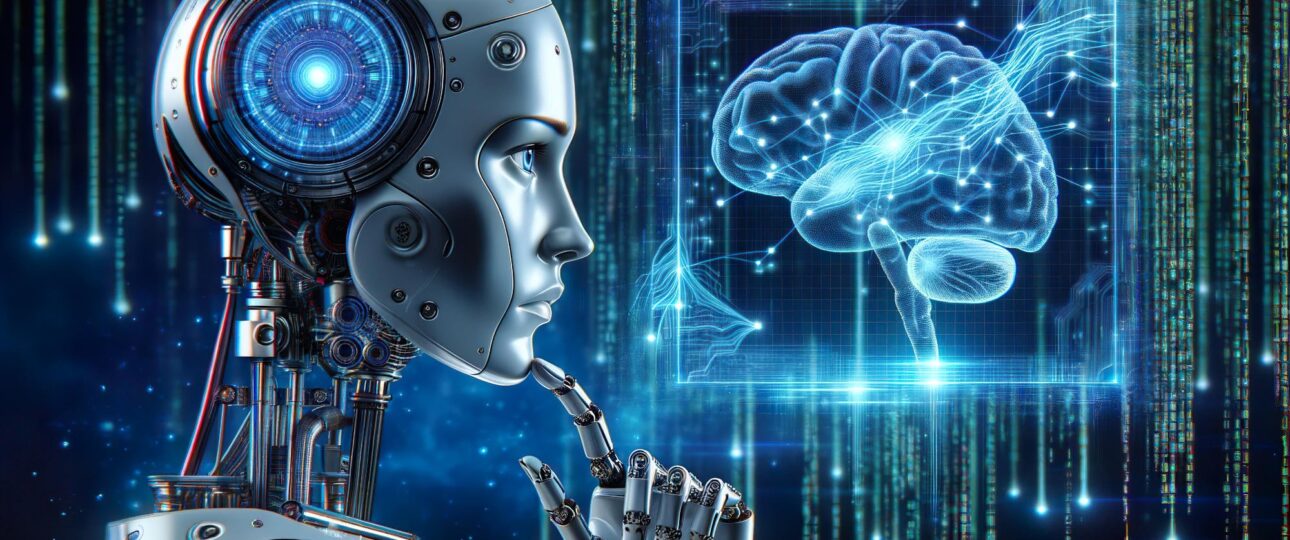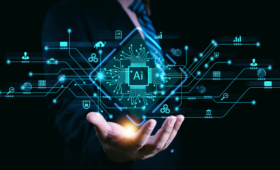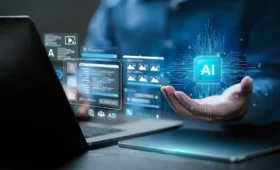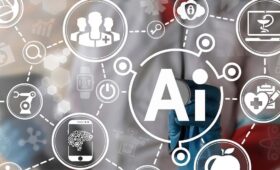Artificial Intelligence (AI) has quickly become one of the most powerful forces in technology, revolutionizing industries, improving daily life, and reshaping the future. AI refers to the ability of machines and computer systems to mimic human intelligence, including tasks such as learning, reasoning, problem-solving, and decision-making. With advancements in machine learning, deep learning, and natural language processing, AI has started to influence every sector—from healthcare to finance, transportation to entertainment, and beyond.
The Role of AI in Modern Society
AI is no longer just a futuristic concept—it is an integral part of our daily lives. From voice assistants like Siri and Alexa to the recommendation systems on Netflix and Amazon, AI touches everything. Its capabilities have grown rapidly, and AI is now a core component in developing solutions for complex problems.
- Improving Efficiency and Automation: AI systems have automated many repetitive and time-consuming tasks. This automation allows humans to focus on higher-level problem-solving while machines take care of routine work. In manufacturing, for instance, robots and AI-driven systems manage assembly lines, leading to faster production and fewer errors. Similarly, in offices, AI tools are used for scheduling, data entry, and customer service, enhancing operational efficiency.
- Enhancing Healthcare: AI is revolutionizing the healthcare industry by improving diagnostics, treatment plans, and patient care. AI-powered tools assist doctors in identifying diseases through image recognition, predicting patient outcomes, and personalizing treatments. Machine learning algorithms analyze patient data to detect patterns that might be missed by humans, contributing to earlier diagnoses and better outcomes. AI is also transforming drug discovery, helping researchers identify potential treatments faster.
- Shaping the Future of Transportation: AI has paved the way for autonomous vehicles. Self-driving cars, trucks, and drones rely on AI algorithms to navigate roads, avoid obstacles, and make real-time decisions. In addition to increasing convenience and reducing human error, these AI-powered vehicles promise to reduce traffic accidents and improve fuel efficiency. AI is also playing a significant role in optimizing traffic flow, reducing congestion, and enhancing public transportation systems.
- Revolutionizing Customer Service: AI-powered chatbots and virtual assistants are now widely used by businesses to enhance customer service. These systems can handle customer inquiries, provide product recommendations, and resolve issues quickly and efficiently. Unlike traditional customer service systems, AI can operate 24/7, offering support at any time of day and across various platforms. This reduces wait times and provides customers with immediate, personalized responses.
- AI in Finance: In the financial sector, AI is used to automate trading, detect fraud, and improve customer experience. Algorithms analyze market trends and make real-time decisions on buying or selling stocks. AI systems are also used for credit scoring, helping financial institutions assess risk more accurately. In banking, chatbots help customers with tasks like checking balances, making transactions, and answering frequently asked questions.
- AI in Entertainment: AI has transformed the entertainment industry by providing personalized content recommendations, automating content creation, and enhancing user experiences. Platforms like Netflix and Spotify use AI to analyze user behavior and recommend movies, TV shows, and music based on individual preferences. AI is also used to create more realistic CGI in movies and video games, improving the visual experience and driving creativity in the entertainment world.
The Impact of AI on Jobs and the Economy
AI is reshaping the workforce, with both positive and negative implications. While AI can create new job opportunities by powering innovative industries and solutions, it also presents challenges, particularly in automation and job displacement.
- Job Creation: AI has led to the emergence of entirely new fields and job roles, such as AI specialists, data scientists, machine learning engineers, and robotics technicians. Companies across industries are hiring AI experts to build, deploy, and maintain AI systems. The growth of AI-related sectors has led to a demand for workers skilled in coding, machine learning, and data analysis, boosting tech-related job markets.
- Job Displacement: On the flip side, the rise of AI-powered automation has raised concerns about job displacement in certain sectors. For example, manufacturing jobs, retail positions, and even some aspects of customer service could be replaced by AI systems and robots. While AI will enhance efficiency, it will require workers to adapt by acquiring new skills, especially in technology-related fields.
- Changing Skill Sets: As AI technologies advance, the demand for new skills is growing. Workers are now encouraged to develop competencies in AI, data analysis, machine learning, and other technical fields. This shift is driving the need for educational institutions to update curricula and provide training programs that can equip workers with the tools they need to succeed in an AI-driven economy.
Ethical Considerations and Challenges of AI
With AI’s rapid advancement, ethical concerns have also emerged. The integration of AI into various aspects of society raises important questions regarding privacy, fairness, bias, and accountability.
- Data Privacy: AI systems rely on vast amounts of data to function effectively. The collection and use of personal data in AI applications, especially in fields like healthcare and finance, raise concerns about privacy and data protection. Ensuring that AI systems comply with privacy regulations (such as GDPR) and that personal data is securely stored and handled is a key challenge for businesses deploying AI technologies.
- Bias and Fairness: AI algorithms are only as good as the data they are trained on. If the data sets used to train AI models are biased, the AI systems may perpetuate or even amplify those biases. This can lead to discriminatory outcomes in areas such as hiring, lending, and law enforcement. Addressing bias in AI is an ongoing challenge and requires careful consideration of diverse and representative data.
- Accountability and Transparency: AI decision-making can sometimes be opaque, especially in complex systems like deep learning models. If an AI system makes a mistake or causes harm, it can be difficult to determine who is responsible. Ensuring transparency in AI algorithms and establishing clear accountability frameworks are necessary to address concerns about fairness, safety, and trust.
- Job Displacement and Economic Inequality: As AI-driven automation becomes more prevalent, there is concern that economic inequality could widen. High-skill workers who can develop and manage AI systems will thrive, while low-skill workers may face unemployment or a decline in job quality. Ensuring that the benefits of AI are shared fairly across society is a challenge for policymakers, businesses, and educators.
The Future of AI
AI is continually evolving, with new breakthroughs and innovations emerging regularly. The future of AI promises even more transformative changes, such as:
- General AI: Unlike narrow AI, which is designed to perform specific tasks, general AI will be able to understand and perform any intellectual task that a human can do. While still a distant goal, advancements in general AI could lead to highly intelligent machines capable of independent reasoning and problem-solving.
- AI in Sustainability: AI is expected to play a significant role in addressing global challenges such as climate change and resource management. AI algorithms can optimize energy consumption, predict environmental changes, and improve agricultural practices, contributing to more sustainable solutions.
- Human-AI Collaboration: Instead of replacing humans, AI is likely to work alongside people, enhancing human capabilities and creativity. AI can assist with decision-making, problem-solving, and creativity, allowing individuals and teams to accomplish more than they could alone.
Conclusion
AI is rapidly transforming the way we live and work, offering exciting possibilities and opportunities. As the technology continues to evolve, it will likely have an even greater impact on industries, economies, and society as a whole. However, the challenges and ethical concerns associated with AI must be addressed thoughtfully to ensure that its benefits are realized responsibly and equitably.




